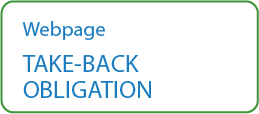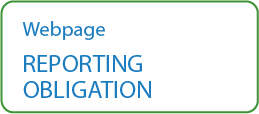The cooperation agreement
Below you can find out what the Cooperation Agreement entails, how it came about and what its impact is on businesses.
What does the Cooperation Agreement entail?
The Cooperation Agreement is a legal framework for the prevention and management of all types of packaging waste in Belgium, whether industrial/commercial or household.
The Cooperation Agreement sets out three statutory obligations for companies placing products on the Belgian market: the reporting obligation, the take-back (i.e. recycling and recovery) obligation and the submission of a prevention plan.
In addition, the Cooperation Agreement outlines a legal framework for accredited compliance organisations, which are responsible for the selective collection of packaging waste arising from businesses and households.
The Cooperation Agreement also contains important legal definitions of packaging and related aspects, as well as regulations on sanctions and checks.
Click here for the full Cooperation Agreement of 4 November 2008.
How did the Cooperation Agreement come about?
On 20 December 1994 the European Parliament published Directive 94/62/EC, which set out the obligation for all Member States of the European Union to provide a legal framework to harmonise the management and prevention of packaging waste within Europe.
In Belgium, this legal framework is provided by the Cooperation Agreement, a piece of legislation stipulating how Belgium will meet the objectives.
The Flemish Region, the Walloon Region and the Brussels-Capital Region have jointly signed the Cooperation Agreement on the prevention and management of packaging waste.
The Cooperation Agreement is a legal document that applies to the whole of Belgium. The creation of the IRPC is laid down in the Cooperation Agreement.
The IRPC is responsible for ensuring proper compliance with the Cooperation Agreement.
What is the impact on businesses?
According to the Cooperation Agreement, as a company you are responsible for the packaging waste arising from the products you place on the Belgian market:
- Do you package products yourself or have them packaged before placing them on the Belgian market?
- Do you import packaged products to place them on the Belgian market?
- Or do you import products and unpack them in your company?
If so, you have three statutory obligations:
1. Take-back obligation
Who does it apply to?
Companies that place more than 300 kg of packaging on the Belgian market per year.
What does it entail?
You must be able to demonstrate annually that at least 80% of the packaging in question is recycled and that 85% recovery is achieved (recycling + energy recovery).
How can this obligation be met?
You have two options:
- You can join an accredited compliance organisation, which takes care of the formalities for you.
- You can report to the IRPC yourself.
2. Reporting obligation
Who does it apply to?
Any company placing packaged products on the Belgian market.
What does it entail?
You must report annually to the Interregional Packaging Commission on the quantity, type and recycling rate of any packaging your company places on the Belgian market.
In short, you must demonstrate that you meet the legally mandated targets.
How can this obligation be met?
You have two options:
- You can join an accredited compliance organisation, which takes care of the formalities for you.
- You can report to the IRPC yourself.
3. Submission of a prevention plan
Who does it apply to?
Companies that:
- place at least 300 tonnes of one-way packaging on the Belgian market
or
- package goods in Belgium (or have them packaged) using a minimum of 100 tonnes of one-way packaging
What does it entail?
The aim of the prevention plan is to make companies think systematically about how to prevent and reduce packaging waste. The plan must be submitted every three years.
How can this obligation be met?
You have two options:
- You can report to the IRPC yourself.
- You can ask your trade association whether it can take care of it for you.






